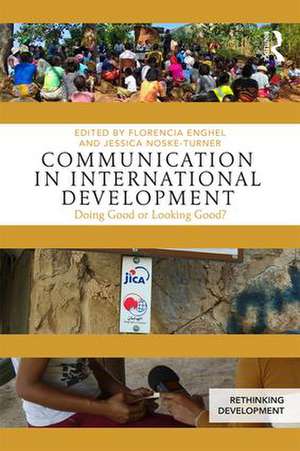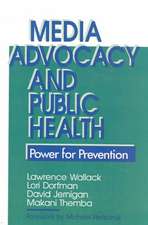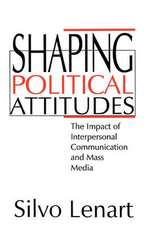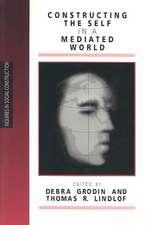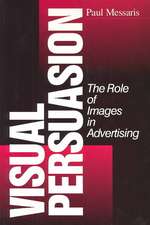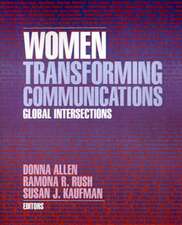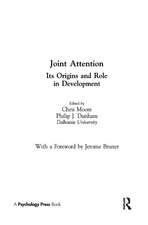Communication in International Development: Doing Good or Looking Good?: Rethinking Development
Autor Florencia Enghel,, Jessica Noske-Turneren Limba Engleză Paperback – 29 mai 2018
International development stakeholders harness communication with two broad purposes: to do good, via communication for development and media assistance, and to communicate do-gooding, via public relations and information. This book unpacks various ways in which different efforts to do good are combined with attempts to look good, be it in the eyes of donor constituencies at large, or among more specific audiences, such as journalists or intra-agency decision-makers.
Development communication studies have tended to focus primarily on interventions aimed at doing good among recipients, at the expense of examining the extent to which promotion and reputation management are elements of those practices. This book establishes the importance of interrogating the tensions generated by overlapping uses of communication to do good and to look good within international development cooperation.
The book is a critical text for students and scholars in the areas of development communication and international development and will also appeal to practitioners working in international aid who are directly affected by the challenges of communicating for and about development.
Din seria Rethinking Development
-
 Preț: 288.81 lei
Preț: 288.81 lei -
 Preț: 279.66 lei
Preț: 279.66 lei -
 Preț: 215.16 lei
Preț: 215.16 lei - 8%
 Preț: 381.60 lei
Preț: 381.60 lei -
 Preț: 284.73 lei
Preț: 284.73 lei -
 Preț: 265.01 lei
Preț: 265.01 lei -
 Preț: 311.06 lei
Preț: 311.06 lei -
 Preț: 293.90 lei
Preț: 293.90 lei -
 Preț: 175.80 lei
Preț: 175.80 lei -
 Preț: 266.27 lei
Preț: 266.27 lei -
 Preț: 279.32 lei
Preț: 279.32 lei -
 Preț: 303.31 lei
Preț: 303.31 lei -
 Preț: 302.17 lei
Preț: 302.17 lei - 18%
 Preț: 996.96 lei
Preț: 996.96 lei - 18%
 Preț: 1001.84 lei
Preț: 1001.84 lei -
 Preț: 352.63 lei
Preț: 352.63 lei -
 Preț: 323.28 lei
Preț: 323.28 lei - 18%
 Preț: 999.02 lei
Preț: 999.02 lei - 20%
 Preț: 298.64 lei
Preț: 298.64 lei -
 Preț: 295.77 lei
Preț: 295.77 lei -
 Preț: 356.44 lei
Preț: 356.44 lei -
 Preț: 323.28 lei
Preț: 323.28 lei - 18%
 Preț: 1164.44 lei
Preț: 1164.44 lei -
 Preț: 410.46 lei
Preț: 410.46 lei -
 Preț: 356.44 lei
Preț: 356.44 lei -
 Preț: 353.02 lei
Preț: 353.02 lei -
 Preț: 355.90 lei
Preț: 355.90 lei - 26%
 Preț: 763.39 lei
Preț: 763.39 lei -
 Preț: 442.88 lei
Preț: 442.88 lei -
 Preț: 287.62 lei
Preț: 287.62 lei - 18%
 Preț: 1001.84 lei
Preț: 1001.84 lei -
 Preț: 349.53 lei
Preț: 349.53 lei - 25%
 Preț: 768.30 lei
Preț: 768.30 lei - 18%
 Preț: 999.34 lei
Preț: 999.34 lei -
 Preț: 283.67 lei
Preț: 283.67 lei -
 Preț: 383.92 lei
Preț: 383.92 lei -
 Preț: 350.82 lei
Preț: 350.82 lei - 18%
 Preț: 1001.90 lei
Preț: 1001.90 lei - 26%
 Preț: 764.20 lei
Preț: 764.20 lei - 26%
 Preț: 764.20 lei
Preț: 764.20 lei
Preț: 319.36 lei
Preț vechi: 362.90 lei
-12% Nou
61.11€ • 65.35$ • 50.95£
Carte tipărită la comandă
Livrare economică 17 aprilie-01 mai
Specificații
ISBN-10: 1138569925
Pagini: 198
Ilustrații: 1 Tables, black and white; 3 Line drawings, black and white; 8 Halftones, black and white; 11 Illustrations, black and white
Dimensiuni: 156 x 234 x 11 mm
Greutate: 0.29 kg
Ediția:1
Editura: Taylor & Francis
Colecția Routledge
Seria Rethinking Development
Locul publicării:Oxford, United Kingdom
Public țintă
Postgraduate, Professional, and UndergraduateCuprins
Notă biografică
Jessica Noske-Turner is a Lecturer in Media and Communication at the University of Leicester, UK.
Recenzii
"Communication in International Development: Doing Good or Looking Good? provides a well-illustrated documentation of the communication of international development practices and ideas. As being seen to ‘do good’ with the requisite branding, photo-ops and celebrity endorsements becomes central to the mandate of humanitarian and development organizations, this book helps us to understand how ‘looking good’ is produced, performed and who is affected by it." — Lisa Ann Richey, Roskilde University, Denmark
"Delving into the complex and conflictual world of communication in international development, this important contribution reveals the imperatives and motivations of agencies caught between the desire to ‘do good’ but who end up investing in ‘looking good’ and the gaps between ideological promise and institutional performance. A must read." — Pradip Thomas, University of Queensland, Australia
"This book aptly interrogates the relationship between the ‘walk’ and ‘talk’ of communication and development practices through a range of case studies. The authors balance concerns about the increasing focus of development actors on looking good rather than doing good with empirical material to illuminate the stakes for democracy." — Eleftheria Lekakis, University of Sussex, UK
"What does it mean to claim to ‘do good’ with development assistance resources? Do the requirements of funding agencies mean that whatever is done, it must be made to ‘look good’ to sustain a future flow of funds? What tensions does the donor-recipient relationship give rise to and how are they managed in practice? This outstanding collection of papers probes for answers. It reveals how international development stakeholders frame problems and solutions, how asymmetric power relationships work themselves out, and how media and communication strategies are implicated. The complexity of the challenges in the ‘media and communication for development’ arena are highlighted, providing an essential critique of prevailing practice. Students, scholars and practitioners seeking to change the world in a just, ethical and equitable way must read this book." — Robin Mansell, London School of Economics and Political Science, UK
"Does looking good outweigh doing good in international development cooperation? In what ways do conceptions of justice define what actual "improvement" should involve in development efforts? These hard questions lie at the core of the thrilling volume Enghel and Noske-Turner put together. The editors convened an excellent group of international scholars who wrote well-researched chapters constituting the two parts - and an epilogue - in order to tackle the ambiguities and challenges that mark development communication today and can generate further divides. Enghel and Noske-Turner’s scrutiny of "justice" as an addition to the UN’s 2030 Agenda for Sustainable Development is a welcome and timely intervention. Communication in International Development is a must-read volume for any scholar and practitioner interested not only in development communication, but communication at large." — Miyase Christensen, Stockholm University, Sweden
"Grounded in a solid conceptual framing by the editors, this book delivers thought-provoking contributions that convincingly overcome some of the silo-thinking and tension in discussions about the different roles of communication in international development cooperation. An innovative, ambitious and critical reflection that moves the field forward!" — Thomas Tufte, University of Leicester, UK
Descriere
International development stakeholders harness communication with two broad purposes: to do good, via communication for development and media assistance, and to communicate do-gooding, via public relations and information. This book unpacks various ways in which different efforts to do good are combined with attempts to look good, be it in the eyes of donor constituencies at large, or among more specific audiences, such as journalists or intra-agency decision-makers.
Development communication studies have tended to focus primarily on interventions aimed at doing good among recipients, at the expense of examining the extent to which promotion and reputation management are elements of those practices. This book establishes the importance of interrogating the tensions generated by overlapping uses of communication to do good and to look good within international development cooperation.
The book is a critical text for students and scholars in the areas of development communication and international development and will also appeal to practitioners working in international aid who are directly affected by the challenges of communicating for and about development.
